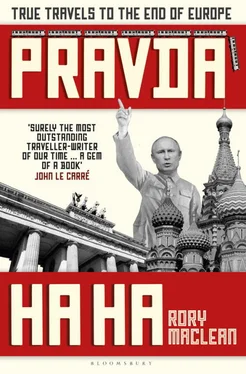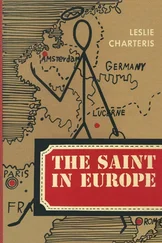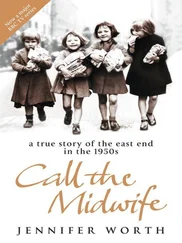Rory MacLean - Pravda Ha Ha - True Travels to the End of Europe
Здесь есть возможность читать онлайн «Rory MacLean - Pravda Ha Ha - True Travels to the End of Europe» весь текст электронной книги совершенно бесплатно (целиком полную версию без сокращений). В некоторых случаях можно слушать аудио, скачать через торрент в формате fb2 и присутствует краткое содержание. Город: London, Год выпуска: 2019, ISBN: 2019, Издательство: Bloomsbury Publishing, Жанр: Путешествия и география, Публицистика, на английском языке. Описание произведения, (предисловие) а так же отзывы посетителей доступны на портале библиотеки ЛибКат.
- Название:Pravda Ha Ha: True Travels to the End of Europe
- Автор:
- Издательство:Bloomsbury Publishing
- Жанр:
- Год:2019
- Город:London
- ISBN:978-1-4088-9652-5
- Рейтинг книги:3 / 5. Голосов: 1
-
Избранное:Добавить в избранное
- Отзывы:
-
Ваша оценка:
- 60
- 1
- 2
- 3
- 4
- 5
Pravda Ha Ha: True Travels to the End of Europe: краткое содержание, описание и аннотация
Предлагаем к чтению аннотацию, описание, краткое содержание или предисловие (зависит от того, что написал сам автор книги «Pravda Ha Ha: True Travels to the End of Europe»). Если вы не нашли необходимую информацию о книге — напишите в комментариях, мы постараемся отыскать её.
Pravda Ha Ha: True Travels to the End of Europe — читать онлайн бесплатно полную книгу (весь текст) целиком
Ниже представлен текст книги, разбитый по страницам. Система сохранения места последней прочитанной страницы, позволяет с удобством читать онлайн бесплатно книгу «Pravda Ha Ha: True Travels to the End of Europe», без необходимости каждый раз заново искать на чём Вы остановились. Поставьте закладку, и сможете в любой момент перейти на страницу, на которой закончили чтение.
Интервал:
Закладка:
‘That’s it there,’ he said, jabbing a sausage-thick finger at a miniature speedboat beside the model Euxton pub.
He didn’t dwell on the closure of its Royal Ordnance Factory – at one time the biggest munitions-filling factory in the world – or the complete disappearance of the coal and textiles industries.
‘It’s home and you have to love it.’
The unexpected intimacy astonished them both, rising as it can between strangers. They held each other’s gaze until Sami reached again for the bottle in an effort to hide his eyes.
‘You’re a long way from your home, lad.’
Sami hadn’t intended to talk but his tongue felt loosened, perhaps by the longing in the old man’s voice, perhaps due to the fumes of the dodgy Calor gas heater. Suddenly he was talking about his history, about ancient Hausa Kingdoms and the trans-Saharan city states seized by British colonial forces, their rulers co-opted or killed, their neighbourhoods set on fire. He remembered the tropical green mornings of childhood and Sokoto’s twinkling city lights beneath a pitch-black sky. He spoke of the dust-dry Bukkuyum gold mine, the brutal Moscow convent and the molten chocolate tanker. He said that he had been frightened before and after every border, that he was frightened even now downstairs behind the counter. The words spilled out of him, falling like tears, silencing the uncle.
When he finished, the only sound was of the Hornby train rattling over the points. The old man blinked his oily eyes as if wrestling with something he had never imagined, another world, another history.
On the floor beside the armchair was a paper pad. After a moment Sami reached down to pick it up and wrote his name across the top of the page in big block letters.
‘Number one: I am a high-school graduate with a year’s training as a bookkeeper,’ he said. ‘Number two: I speak English, Hausa, some Ashanti and Russian. Number three: I am healthy, apart from the toe. Number four: I can dance.’
On the pad he composed a kind of résumé, recording his birth date, parents’ names and nationality. As he quelled his fears, he thought of the troubles that had cut him deep. He heard Michael Jackson sing, again and again, ‘Beat It’. He wouldn’t be defeated. Nor would he just survive. He wanted to work, to live. The model train went around and around. The Spitfires soared in frozen victory rolls. On the village green, a miniature cricketer stood forever poised to catch out the batsman. When he had finished, he handed the pad to the old man.
‘What’s this?’ he asked.
‘This is who I am,’ answered Sami.
It was after two when Sami finished telling me his tale. He and I sat together at a table dusted by the half-light of the street. The formica was still sticky to the touch, the air so saturated with chip fat that it could be wrung out like a flannel. Nigel and Floriana had left for the night, binning the waste, swabbing the floor and switching off the buzzing neon strips.
‘Like, I believe in fate,’ Sami assured me. ‘I believe I was fated to meet him like I was fated to meet you.’
‘He gave you a proper job?’ I repeated.
‘Man, I’m managing his accounts now, keeping his books.’
We laughed together then lapsed into silence. I wondered what it was that he and Nigel’s uncle had recognised in each other? A mutual vulnerability? An acceptance of loss? I guessed only that it had been something to do with frailty, and the nobility of that frailty. Outside the rain fell in sheets.
Sami and I have stayed in touch over the last year. He’s filled in the missing bits of the story, enabling me to tell it to you. Of course I’ve constructed it from notes, evidence and known facts, as do all writers. Gaps have always had to be filled in for, as we know, every history involves narration of one kind or another.
Sami’s story could have ended another way. He could have stolen the money and been tracked down in Bradford. In Toxteth he might have been spat on every time he left the squat. He could have worked as a dishwasher in Sheffield until his arrest. In the Gatwick Immigration Removal Centre he might have fallen into such a black depression that he couldn’t get out of bed for a week. All these realities are the truth, for the tens of thousands who make it to Britain’s shores.
‘I looked at the man in the mirror, like my father told me,’ Sami had said again at the Blue Nile, the tone of his voice lifting and falling in its flight, dignified yet humble, proud and honest. ‘That’s what I done.’
In the morning I rented a car and drove west to Charnock Green. Across the M6 was Lancashire’s ‘real’ Camelot. For almost three decades, hundreds of thousands of punters had ridden its Knightmare roller coaster, bumped and ground on the Jousting Knights dodgems and risen above themselves on the Kingdom in the Clouds ferris wheel. But then Camelot – and its owner the Story Group – had gone into receivership. The ‘land of great knights and amazing days’ had ceased to be a fairy tale, except in the old man’s scale-model world.
I found a hole in the security fence and stepped through it into Merlin’s crumbling castle. In the courtyard, plaster knights had been decapitated, the Magic Spell souvenir shop pillaged for its timber. Nature had reclaimed the Dungeons of Doom ghost train. No strolling minstrels sang in the Avalon Arena. No heroes splashed in Pendragon’s Plunge water slide.
I settled on a broken seat in the Maid Marian cafe and thought about England. I wondered if Sir Lancelot really had been raised in Martin Mere, the waters of which had long ago covered the grounds of this mock-medieval theme park. Or if Godiva, Countess of Mercia, had actually ridden through the streets of Coventry clothed only in her long hair. Was the heroic tale of a doughty nation standing alone against tyranny now only a tool to unite the isles’ diverse peoples? Had the country really punched above its weight and ‘taken back control’? Or was it blinded by a kind of dreamy narcissism, believing in its own unparalleled greatness?
In Russia, Poland, Transnistria and Hungary, I’d seen people force-fed myths. But I couldn’t understand how the same had come to pass in Britain, or at least England? How could the English – a people raised in a stable, peaceful and prosperous society with centuries of democracy and freedom – have swallowed the vapid promises of restored glory? How could they – we – have allowed ourselves to be played like puppets?
In its post-imperial confusion, England – once renowned for its pragmatism, common sense and political stability – had become a hollowed-out country, ill at ease with itself. Over the last three decades, its near neighbours had learned to thrive in a multicultural world. Scotland had understood the benefits of being Scottish, British and European. Ireland had rebuked absolutist fantasies. The Netherlands had come to terms with its own guilty history of colonialism, accepting itself as part of an imperfect family. France and Germany had deepened the embrace of a common idea to end centuries of animosity. Yet jolly ol’ England had harked back to an older and cruder form of nationalism, wrapping itself in an empire comforter to protect it from chilly reality, unable to face its fading significance.
In the rickety remains of Camelot, the crack of gunshots startled me out of my reverie. Cries of angry voices cut through rapid machine-gun fire. But it wasn’t the sound of a revolution, at least not yet. Beyond the headless plaster knights and faded Crosses of St George were a couple of small adventure parks. At Battlefield Live Pennine, local kids celebrated birthdays with simulated ‘authentic combat experience’. Next door, TerrorFest UK promised that ‘screams come true’. In their muddy trenches and burnt-out buildings, stag and hen parties undertook ‘hard-core, pre-wedding missions before hitting the town and drinking like off-duty squaddies’. At both venues Morita sniper rifles were said to be the weapon of choice for brides-to-be.
Читать дальшеИнтервал:
Закладка:
Похожие книги на «Pravda Ha Ha: True Travels to the End of Europe»
Представляем Вашему вниманию похожие книги на «Pravda Ha Ha: True Travels to the End of Europe» списком для выбора. Мы отобрали схожую по названию и смыслу литературу в надежде предоставить читателям больше вариантов отыскать новые, интересные, ещё непрочитанные произведения.
Обсуждение, отзывы о книге «Pravda Ha Ha: True Travels to the End of Europe» и просто собственные мнения читателей. Оставьте ваши комментарии, напишите, что Вы думаете о произведении, его смысле или главных героях. Укажите что конкретно понравилось, а что нет, и почему Вы так считаете.

![Эдвард Докс - Pravda ['Self Help' in the UK]](/books/33503/edvard-doks-pravda-self-help-in-the-uk-thumb.webp)










